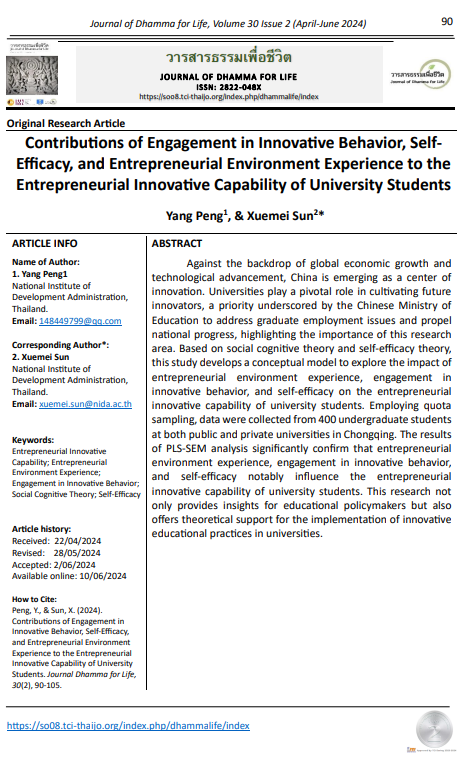Contributions of Engagement in Innovative Behavior, Self-Efficacy, and Entrepreneurial Environment Experience to the Entrepreneurial Innovative Capability of University Students
Main Article Content
Abstract
Against the backdrop of global economic growth and technological advancement, China is emerging as a center of innovation. Universities play a pivotal role in cultivating future innovators, a priority underscored by the Chinese Ministry of Education to address graduate employment issues and propel national progress, highlighting the importance of this research area. Based on social cognitive theory and self-efficacy theory, this study develops a conceptual model to explore the impact of entrepreneurial environment experience, engagement in innovative behavior, and self-efficacy on the entrepreneurial innovative capability of university students. Employing quota sampling, data were collected from 400 undergraduate students at both public and private universities in Chongqing. The results of PLS-SEM analysis significantly confirm that entrepreneurial environment experience, engagement in innovative behavior, and self-efficacy notably influence the entrepreneurial innovative capability of university students. This research not only provides insights for educational policymakers but also offers theoretical support for the implementation of innovative educational practices in universities.


